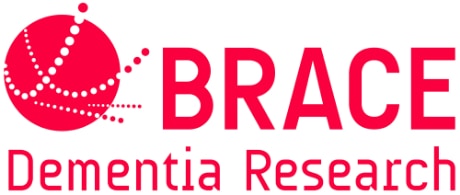Dr Amy Jenkins
Research Project: Swansea University, 2016
Providing a detailed and objective characterisation of subjective cognitive impairment (Post-doctoral fellowship)
See glossary at bottom of page for definition of underlined words.
Summary
Subjective cognitive impairment (SCI) is defined as changes in memory and cognition in the absence of objective evidence (such as a neuropsychologicaltest). This research looks to characterise SCI in comparison to healthy ageing and understand the brain changes associated with SCI. Understanding what brain changes lead to SCI may pave the way for a test for early-onset dementia and ways to reduce further cognitive decline caused by dementia.
What do we already know?
Subjective cognitive impairment (SCI) is a condition in which an individual experiences and recognises subjective changes in their memory and cognition in the absence of objective evidence of abnormality (i.e. changes not identified by current neuropsychological tests). Although SCI can have different causes, some of them treatable, research increasingly indicates that irrespective of causality, subjective changes in cognition can significantly impair a person’s quality of life, especially their social interaction, and that it can represent an increased risk factor for mild cognitive impairment (MCI) and dementia. Although both MCI and SCI represent risk factors for dementia, SCI has received relatively little attention in both the research and clinical arenas compared to MCI.
What is the project trying to find out?
The objective of this project is to further and objectively characterise SCI in comparison to cognitively healthy ageing in adults aged 55-65 years, using a multidisciplinary approach in such a way that will have high translational value for clinical application. Although the main feature of Alzheimer’s disease (AD) and MCI is memory dysfunction, a multidisciplinary research approach continues to reveal a much wider range of significant abnormalities, particularly with respect to visual attention-related processing, in these disorders in comparison to cognitively healthy ageing.
In this project, we aim to determine more fully the functional integrity of a wide range of previously ignored brain functions in the related condition of SCI compared to cognitively healthy ageing. The information will provide an evidence-based insight of why people with SCI may experience certain changes in their memory and whether such subjective feelings may be associated with objective changes in aspects of brain function that are not picked up using conventional clinical tests, what effects such changes may have on a person’s behaviour and whether, with further development, such tests may improve early detection of neurodegenerative change.
How will this be done?
Working on this collaborative research project with Amy are Prof Andrea Tales, Dr Jeremy Tree and Prof Antony Bayer (Cardiff). The study will involve the use of a wide range of neuropsychological and computer-based tests designed to measure the integrity of numerous brain functions including aspects of vision and visual-attention related function, which have rarely, if ever, previously been investigated in SCI.
Why is this research important?
Increasing our understanding of the functional integrity of many aspects of brain processing in SCI, will facilitate our understanding of the how this disorder can affect everyday life, the development of intervention strategies to prevent further cognitive decline, and the search for early dementia markers and its relationship to cognitively healthy ageing, MCI and dementia.
Glossary
Cognition – The mental process of knowing, including aspects such as awareness, perception, reasoning, and judgement.
Neuropsychology – The study of behavioural changes resulting from a brain disorder.
Multidisciplinary – Multidisciplinary research is the term used to describe research that utilises many different areas (disciplines) of science (eg. Biology + Chemistry).
Clinical application – Clinical means relating to the treatment of patients. A clinical application is when research is applied to produce a treatment for a specific disease.
Memory dysfunction – Symptoms pertaining to memory problems; such as forgetfulness, long-term or short-term memory difficulties.
Neurodegeneration – The death of brain cells and subsequent effects on brain tissue. Alzheimer’s disease, Parkinson’s disease and dementia with Lewy bodies are all neurodegenerative diseases.
Collaboration (research) – Collaborative research involves multiple academics working together on the same research project.
Further information
Please click here for more information about the work of Dr Amy Jenkins
Please click here for more information about the work of Professor Andrea Tales
Please click here for more information about the work of Dr Jeremy Tree
Please click here for more information about the work of Professor Antony Bayer
Share this page
